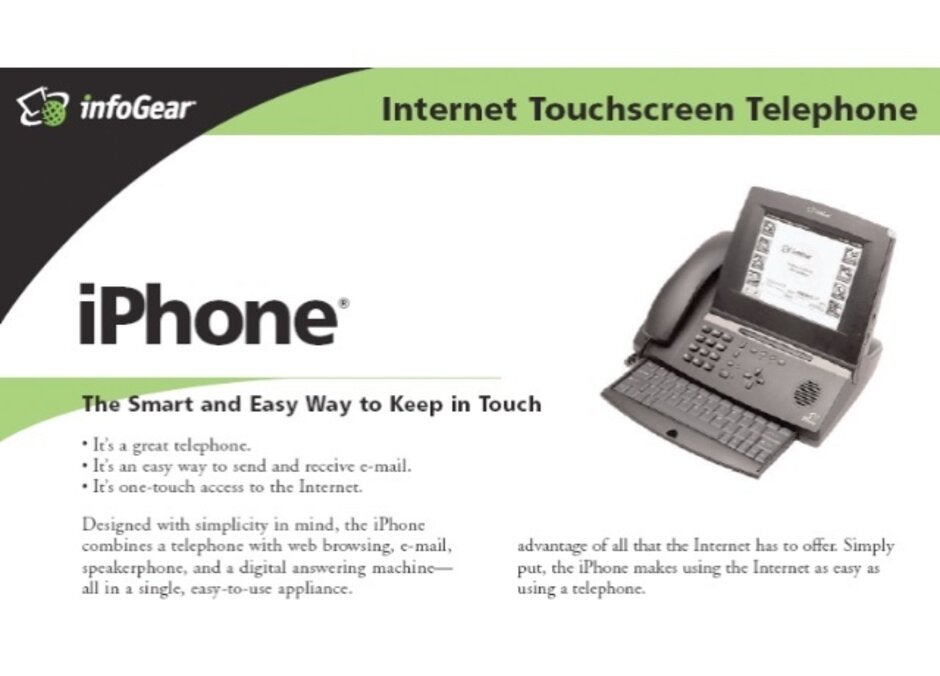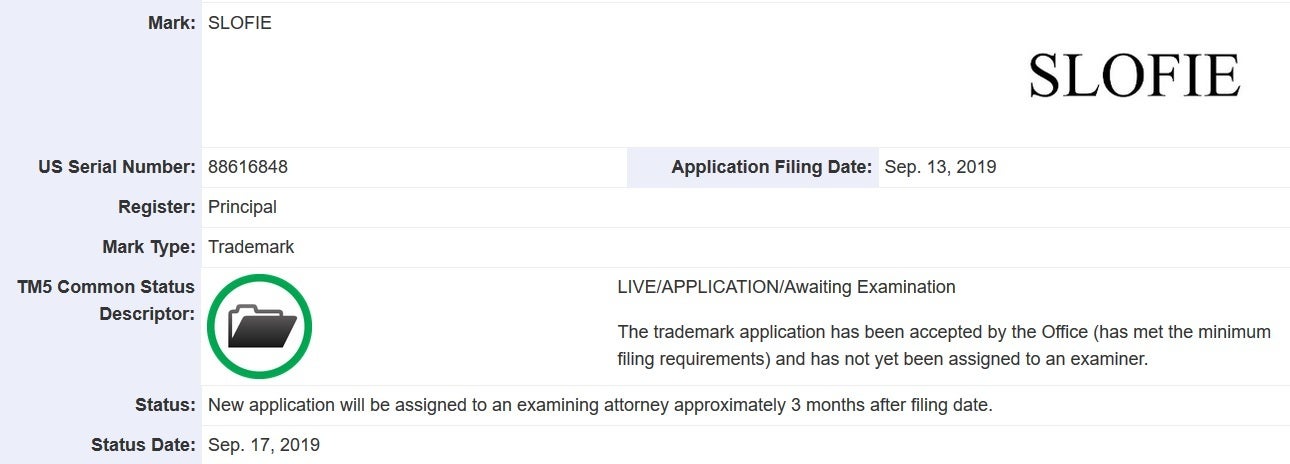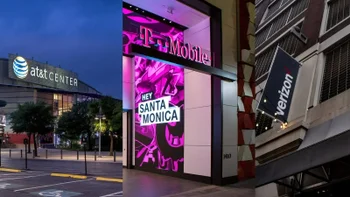Apple files to trademark the 'Slofie' name

If you were watching Apple's new product event last week, you might have done a double-take when the world "Slofies" was first mentioned. This is Apple's own term for selfies recorded in slow-motion at 120fps. As it turns out, Apple has filed with the U.S. Patent and Trademark Office (USPTO) to trademark the term in the U.S. (via The Verge). The 2019 iPhones are the first able to capture selfies in slow-motion and Apple is hoping that the feature and the term catch on with the TikTok generation.
Apple ran into legal issues when it first used the iPhone name
Apple played a video about Slofies at the event last week which will no doubt become a commercial. It shows what might have been an ad for makeup or some other fashion product; for the first 8 seconds anyway. And then things start to fall apart quickly. Finally, we see that the wind-blown effect was created using a blow drier; as we said, this is a perfect feature for the TikTok generation.

The first iPhone
You might recall that when it comes to trademarks, Apple has run into some issues with its iOS devices. For example, no sooner did Steve Jobs introduce the iPhone on that fateful January day in 2007 then Cisco took Apple to court for using the iPhone name. Cisco had control of the trademark after acquiring Linksys; the latter had purchased the trademark holder Infogear in 2000. Cisco was selling a cordless VoIP (voice over internet) phone called iPhone. And Apple wasn't blindsided by this; it had been negotiating with Cisco for two years but no agreement was reached prior to the unveiling at MacWorld. Apple also was in no rush to make a deal because it pointed out that no one would confuse Cisco's iPhone with the Apple iPhone (especially back in 2007). Cisco General Counsel Mark Chandler said, "Cisco entered into negotiations with Apple in good faith after Apple repeatedly asked permission to use Cisco’s iPhone name. Today’s iPhone is not tomorrow’s iPhone. The potential for convergence of the home phone, cell phone, work phone, and PC is limitless, which is why it is so important for us to protect our brand." Apple and Cisco finally reached terms in February 2007. Ironically, three years later Apple reached a deal to use the iOS name from the networking firm. Cisco used the same three letters for its routing software.

Apple files to trademark the Slofie name in the U.S.
A different battle occurred in 2012 over the iPad name. Not wanting a repeat of the iPhone name battle with Cisco, Apple started filing trademark applications around the world for the iPad prior to the tablet's launch in 2010. In countries where another company owned the name, Apple reached into its wallet and bought the rights. The company had done this in China by purchasing the iPad name from a company in China called Proview back in 2009. But as it turned out, the Proview unit that owned the iPad name was not the one that Apple made the deal with. A lawsuit ensued and in July 2012, Apple agreed to pay Proview $60 million to settle the suit and obtain the rights to the iPad name in the country.
Follow us on Google News













Things that are NOT allowed:
To help keep our community safe and free from spam, we apply temporary limits to newly created accounts: